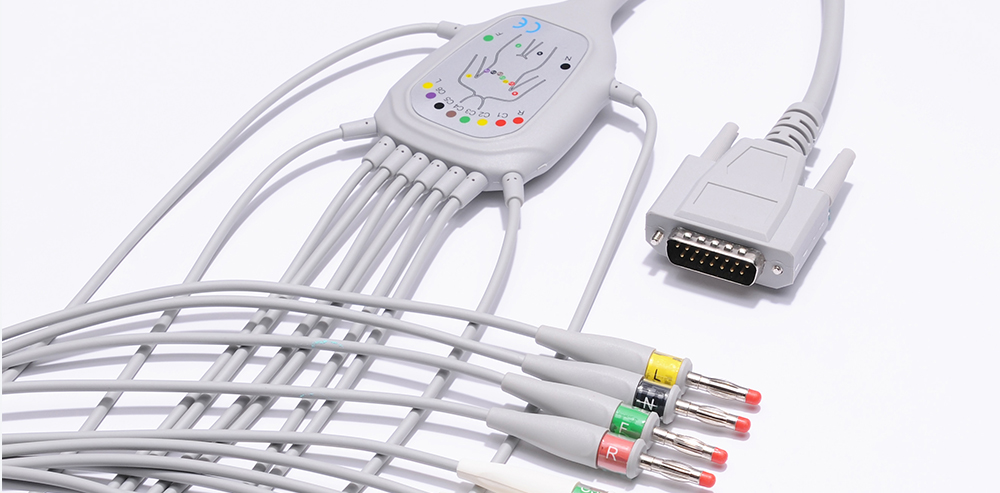Insiders: The domestic medical device industry is expected to usher in a golden decade of rapid development
Fecha: 2022-01-22
Autor: CARAMED
Puntos de vista: 977
In recent years, with the technological advancement of my country's medical device companies and the maturity of the supporting industrial chain, as well as the promotion of national policies such as medical reform, graded diagnosis and treatment, and support for domestic equipment, my country's medical device industry is expected to usher in a golden decade of rapid development. Import substitution is the main theme of the development of equipment in the next ten years. Looking back on the successful experience in the subdivision of import substitution, my country will realize import substitution in more fields in the next five to ten years.
Tracing back to the successful experience in the field of import substitution
At present, domestic medical equipment has gradually broken through a number of technical barriers, and has basically achieved import substitution (domestic production accounted for more than 50%). The subdivisions include: 1) Cardiovascular stents, cardiac occluders, and artificial implantable consumables. Trauma and spinal products in meninges, orthopedic implants, etc.; 2) monitors, DR, etc. in large and medium-sized medical equipment; 3) biochemical diagnosis in the field of in vitro diagnostics; 4) oxygen generators in home medical equipment, Sphygmomanometer, etc.
We believe that import substitution will continue to be the main theme of China's medical device development in the next ten years, and this process needs to be accompanied by the innovation and upgrading of domestically-owned technologies. By tracing the successful experience in the field of import substitution, it has a strong guiding significance for the future development direction of the sub-fields in which my country has not achieved import substitution.
Cardiovascular stents: complete import substitution in four years
Before 2004, the domestic coronary stent market was basically dominated by imported products, and many multinational giants such as Johnson & Johnson, Medtronic, and Boston Scientific accounted for more than 95% of the market. Following the launch of Minimally Invasive Medical's first domestic drug-eluting coronary stent in 2004 and Lepu Medical's second domestic drug-eluting coronary stent in 2005, domestic drug stents have gradually taken a place in the domestic market.
According to the statistics of the Surgical Implant Professional Committee of the China Medical Device Industry Association, the domestic stent market share reached 59%, 65%, and 70% in 2006, 2007, and 2008, respectively, completely breaking the monopoly of the drug stent system industry by foreign companies . In 2008, the top six companies in the domestic coronary stent system market were Minimally Invasive Medical, Lepu Medical, Shandong Jiwei, Johnson & Johnson, Boston and Medtronic, which together accounted for approximately 93% of the market share, among which domestic manufacturers are increasingly competing Advantage. As of 2017, domestic brands Lepu, MicroPort and Jiwei accounted for 24%, 23%, and 20% of the heart stent market, respectively, accounting for 67% of the total market share, while Abbott, which had the highest share of imported brands, only had 13%. Domestic brands began to dominate the heart stent market.

Domestic stents can quickly realize import substitution in a short period of time, mainly due to the following reasons:
Excellent product performance
Domestic stents are similar to foreign products in terms of drug and carrier selection and drug release technology; process technologies such as polishing and drug coating are close to or even exceed the international advanced level in some aspects; in terms of stent design, size specifications, ease of operation, and stent compatibility The integration of the delivery system and other aspects can better adapt to the clinical needs of domestic patients. Clinical studies have confirmed that domestic coronary stents and imported stents have similar safety and effectiveness.
Domestic products are cost-effective
In terms of product prices, the unit price of imported drug stents in 2008 was between RMB 159,000 and RMB 19,300, while the unit price of domestic stents of the same quality was between RMB 1.08 and RMB 110, 000. Patients using domestic products can save about 1/3 of the cost of equivalent foreign products. For medical equipment fees, domestic products have a relatively large price advantage. In recent years, the rise of domestic heart stent products has forced the market price of imported brand heart stents to drop by more than half.
Tracing back to the successful experience in the field of import substitution
At present, domestic medical equipment has gradually broken through a number of technical barriers, and has basically achieved import substitution (domestic production accounted for more than 50%). The subdivisions include: 1) Cardiovascular stents, cardiac occluders, and artificial implantable consumables. Trauma and spinal products in meninges, orthopedic implants, etc.; 2) monitors, DR, etc. in large and medium-sized medical equipment; 3) biochemical diagnosis in the field of in vitro diagnostics; 4) oxygen generators in home medical equipment, Sphygmomanometer, etc.
We believe that import substitution will continue to be the main theme of China's medical device development in the next ten years, and this process needs to be accompanied by the innovation and upgrading of domestically-owned technologies. By tracing the successful experience in the field of import substitution, it has a strong guiding significance for the future development direction of the sub-fields in which my country has not achieved import substitution.
Cardiovascular stents: complete import substitution in four years
Before 2004, the domestic coronary stent market was basically dominated by imported products, and many multinational giants such as Johnson & Johnson, Medtronic, and Boston Scientific accounted for more than 95% of the market. Following the launch of Minimally Invasive Medical's first domestic drug-eluting coronary stent in 2004 and Lepu Medical's second domestic drug-eluting coronary stent in 2005, domestic drug stents have gradually taken a place in the domestic market.
According to the statistics of the Surgical Implant Professional Committee of the China Medical Device Industry Association, the domestic stent market share reached 59%, 65%, and 70% in 2006, 2007, and 2008, respectively, completely breaking the monopoly of the drug stent system industry by foreign companies . In 2008, the top six companies in the domestic coronary stent system market were Minimally Invasive Medical, Lepu Medical, Shandong Jiwei, Johnson & Johnson, Boston and Medtronic, which together accounted for approximately 93% of the market share, among which domestic manufacturers are increasingly competing Advantage. As of 2017, domestic brands Lepu, MicroPort and Jiwei accounted for 24%, 23%, and 20% of the heart stent market, respectively, accounting for 67% of the total market share, while Abbott, which had the highest share of imported brands, only had 13%. Domestic brands began to dominate the heart stent market.

Domestic stents can quickly realize import substitution in a short period of time, mainly due to the following reasons:
Excellent product performance
Domestic stents are similar to foreign products in terms of drug and carrier selection and drug release technology; process technologies such as polishing and drug coating are close to or even exceed the international advanced level in some aspects; in terms of stent design, size specifications, ease of operation, and stent compatibility The integration of the delivery system and other aspects can better adapt to the clinical needs of domestic patients. Clinical studies have confirmed that domestic coronary stents and imported stents have similar safety and effectiveness.
Domestic products are cost-effective
In terms of product prices, the unit price of imported drug stents in 2008 was between RMB 159,000 and RMB 19,300, while the unit price of domestic stents of the same quality was between RMB 1.08 and RMB 110, 000. Patients using domestic products can save about 1/3 of the cost of equivalent foreign products. For medical equipment fees, domestic products have a relatively large price advantage. In recent years, the rise of domestic heart stent products has forced the market price of imported brand heart stents to drop by more than half.













